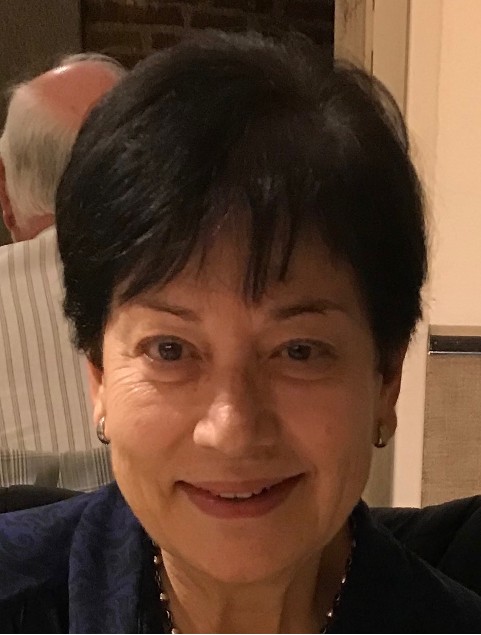Translated by Elena Barcia
Five Poems from Ligia
Hay un país remoto en el fondo de todos los días.
Siempre es el mismo
(aunque sabemos que ya no existe).
Estrecho callejón sobrevolado por tordos,
árboles y árboles poblados de plumaje oscuro,
tal vez también un río,
más bien pozones, antes de la sequía total.
Erosión del significado.
Este cuerpo no sabía que dejaba atrás
el mundo propio.
There’s a remote country at the bottom of days.
It’s always the same
(even though we know it no longer exists).
A narrow alley with blackbirds flying above,
trees and more trees filled with dark feathers,
perhaps also a river,
or rather pools, before total drought.
The erosion of meaning.
This body did not know that it was leaving behind
its own world.
Uno quiere envejecer en su lengua.
Buscar, para morir,
el sitio donde está enterrado su cordón.
We would like to grow old in our own language.
To find, in order to die,
the place where our umbilical cord is buried.
El nuevo país
copia feliz del original,
es más hondo,
de gruesas fronteras.
Ha sido lavado, llorado,
corren ríos rojos subterráneos.
Demasiados cadáveres
se han fundido en el suelo patrio.
Un líquido espanto
busca cauces
cráteres orificios de salida.
The new country
a first-rate copy of the original,
is deeper,
with thicker borders.
It’s been washed, mourned,
red rivers flow underground.
Too many bodies
have dissolved into the nation’s soil.
A liquid horror
seeks channels
craters orifices to escape.
Regresar, otro desgarro.
Nadie preguntó por las heridas
por cortes cicatrices
nadie mencionó el dolor.
Sólo se habla del destierro con otros desterrados.
Y el cuerpo mapa
se tatúa con gente muerta
amada gente que ya no está.
The return, another heartbreak.
No one asked about the wounds
about cuts scars
no one mentioned the pain.
We only talk about exile with other exiles.
And the body map
is tattooed with dead people
beloved people who have disappeared.
Utopía de hortensias y cisnes.
El colectivo del futuro
podrá buscar esta reserva
presagios de paz en la cocina.
Sus caderas cuadernas
botadas en estas playas.
Se sueña
fundar otra vez el territorio
Se guardan fragmentos de fotografías
todos los nombres
todos los actos heroicos.
Una comarca de sanación.
Utopia of hydrangeas and swans.
The society of the future
can search for this reserve.
Hints of peace in the kitchen.
Her hips, ribs of the ship,
tossed onto these beaches.
There are dreams
of settling the land once again.
People save fragments of photographs
all the names
all the heroic acts.
A region for healing.
*Muñoz is an acclaimed Chilean poet, author of eleven books of poetry and winner of multiple literary prizes including the Pablo Neruda Prize in 2018 for her body of work. Her poems depict life on Chiloé, an island off the southwest coast of Chile, where she was born and lives to this day. They give us a glimpse of the history and culture unique to the island while tackling universal themes like unwanted pregnancies, prostitution, exile, and the ravages of climate change on a culture that depends on the ocean.
NOTES:
I have been collaborating with Rosabetty Muñoz as a translator since 2020. In_ Ligia_(LOM, Ediciones Santiago, 2019), the tenth of Muñoz’s eleven books, the poet addresses a theme that has haunted Chilean society for the last forty years − political exile. During Pinochet’s military dictatorship, the regime had unconditional authority to expel citizens and determine their right to return. Two hundred thousand Chileans left their country in the wake of the 1973 military coup. This book was Inspired by a friend of Muñoz named Ligia, who left Chile to live in Italy for many years, and whose name in Greek means “clear of voice.” It traces the departure and eventual return to Chile of a fictionalized female refugee, and it portrays the various stages of her exile: what it feels like to leave one’s country and live in a land whose culture and language are foreign, what it’s like to return and feel like a foreigner in one’s own land, and what it’s like to begin life anew. The poems in this book draw a thought-provoking metaphorical connection between Ligia’s homeland and her body. As Muñoz puts it: “Here, where the narrow canals are not strictly ocean, but rather sinuous waters that lick the shores, and hills look like feminine nooks and crannies, body and territory are one living entity.”
About the Author

Elena Barcia is a film and literary translator born and raised in Los Angeles. She translated hundreds of movies from Hamlet to Harry Potter before turning to literature. Her translation of Miguel de Unamuno’s classic novel Niebla (Fog) was published by Northwestern University Press in 2017. Her poetry translations have appeared in Asymptote, Poetry International and The Harvard Review. In 2022 she was shortlisted for Poetry International’s Summer Chapbook competition, and her translation of acclaimed Chilean poet Malú Urriola’s book Cadáver exquisito (Exquisite Corpse; Cuarto Propio, 2017) will be published in a bilingual edition by Valparaíso Editions USA in 2023.
Return to top